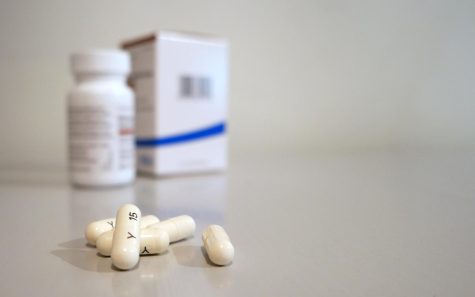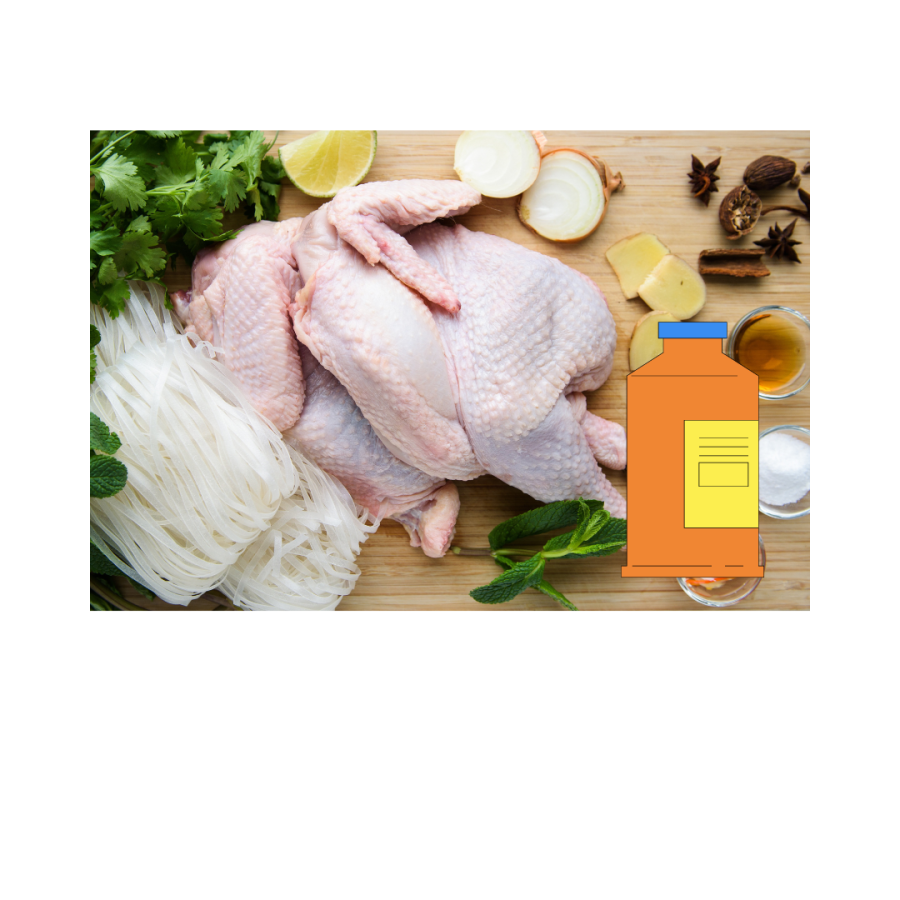FDA Warns Against NyQuil Chicken
Chicken with medicine bottle next to it
September 28, 2022
There has been a slight trend on social media where people will cook their chicken with a well-known over-the-counter medication, NyQuil. This seems to have caught the attention of the FDA, as on Sept. 15 an article called “A Recipe for Danger: Social Media Challenges Involving Medicines” was published.
The article regarded social media trends and over-the-counter medicines. This article specifically focused on people cooking their chicken in NyQuil (including acetaminophen, dextromethorphan, and doxylamine) or similar medications. But also brought up in the article, is another trend where people would ingest large doses of an allergy medication commonly known as Benadryl (diphenhydramine).

So, how dangerous could the challenge be? Well, the FDA points out that “Boiling a medication can make it much more concentrated and change its properties.” This means that boiling the medication can vaporize it, and inhalation can cause the already concentrated drugs to enter your body while possibly becoming damaging your lungs.
After interviewing some of Roosevelt’s own students, it came to my attention that it might not be as much of a trend as the FDA had stated in their article.
ERHS sophomore, Eli Hammond said, “I’ve never heard of that, but honestly that doesn’t seem very safe or good.”
ERHS freshman, Nami Hsieh stated, “I don’t really know what NyQuil is unless it like leads to death I don’t think it’s that serious.”
And our final interviewee, ERHS freshman, Quinten Barbosa commented “The overall idea of it is stupid. It also seems dangerous if you accidentally overdose.”
Regardless of your opinion on NyQuil being cooked with chicken, it’s still important to practice drug safety. And only use medications for their intended use. If you suspect that someone might’ve taken too much medication, don’t hesitate to call 911 or the poison control center at 1-800-222-1222. Always be sure to read the drug facts label for over-the-counter drugs.


